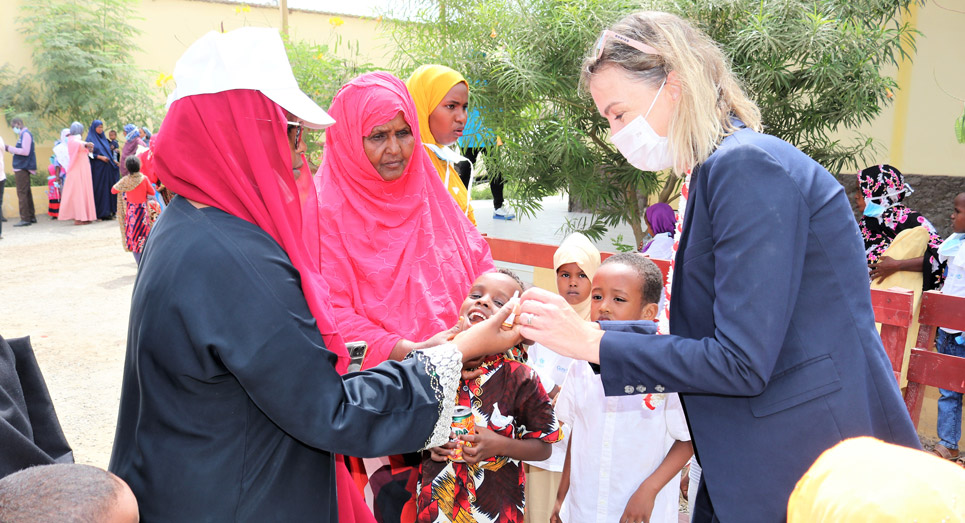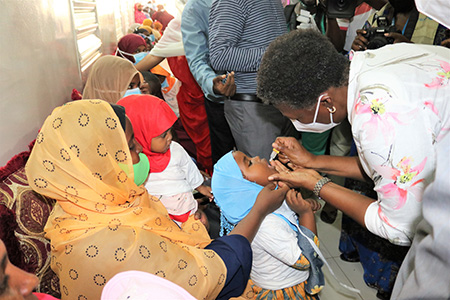
Djibouti, 27 February 2022 - Djibouti’s Ministry of Health, with technical support from WHO and UNICEF, today kicked off a five-day national polio vaccination campaign aiming to reach all children in Djibouti aged zero to 59 months, approximately 150,000 children.
Multi-disciplinary teams of vaccinators, social mobilizers and technical experts are fanning out across the country to knock on every door, vaccinate every child under five and raise immunity levels to this deadly childhood disease. This is a house-to-house campaign, with vaccination also being offered in health facilities.
Djibouti was declared polio-free in 1999, but outbreaks of poliovirus type 2 in Ethiopia, Somalia and Yemen underscore the risk to all children in the Horn of Africa and the broader region. Polio travels with people, and frequent mass population movement across international borders highlights the urgency of raising immunity levels across the region, so the virus has nowhere left to go.
 Poliomyelitis is a contagious disease caused by a virus that invades the nervous system and can lead to lifelong paralysis and even death. Although incurable, poliomyelitis can easily be prevented through vaccination.
Poliomyelitis is a contagious disease caused by a virus that invades the nervous system and can lead to lifelong paralysis and even death. Although incurable, poliomyelitis can easily be prevented through vaccination.
Djibouti’s campaign is being conducted with novel oral polio vaccine type 2 (nOPV2), a next-generation polio vaccine. Clinical trials have demonstrated that nOPV2 is as safe and as effective as monovalent oral polio vaccine (mOPV2), while being more genetically stable. It is now the Global Polio Eradication Initiative’s recommended vaccine for supplementary immunization activities.
With this campaign, Djibouti becomes the second country in WHO’s Eastern Mediterranean Region to use this vaccine, after Egypt carried out a national campaign in late 2021.
A second round of campaigning is planned for late March, in adherence with global best practices to build robust immunity levels and save children’s lives.
Media focal point
Zeinab Ismail Abdillahi
21 35 06 29


